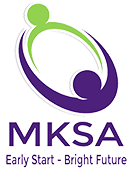(NDT) is a hands-on treatment approach used by physical therapists, occupational therapists, and speech-language pathologists. NDT was developed to enhance the function of adults and children who have difficulty controlling movement as a result of neurological challenges. This therapy uses guided or facilitated movements as a treatment strategy to ensure correlation of input from tactile, vestibular, and somatosensory receptors within the body.
Archives: Terms to Know
Feeding services
Helps children who have motor difficulty with chewing and swallowing.
Sensory integration training
A form of occupational therapy in which special exercises are used to strengthen the patient’s sense of touch (tactile), sense of balance (vestibular), and sense of where the body and its parts are in space (proprioceptive). It appears to be effective for helping patients with movement disorders or severe under- or over-sensitivity to sensory input.
PROMPT
PROMPT is an acronym for Prompts for Restructuring Oral Muscular Phonetic Targets. The technique is a tactile-kinesthetic approach that uses touch cues to a patient’s articulators (jaw, tongue, lips) to manually guide them through a targeted word, phrase or sentence. The technique develops motor control and the development of proper oral muscular movements, while eliminating unnecessary muscle movements, such as jaw sliding and inadequate lip rounding.
Audiology services
Services which involve testing and evaluation of impaired hearing that cannot be improved by medication or surgical treatment; includes services related to hearing aid use and professional consultation.
Counseling
Working with a child or members of the family on issues surrounding or impacted by the child’s developmental delay.
Special Education Teacher
A licensed professional, including an itinerant teacher certified by New York State to teach students with disabilities, who is providing special education to a student.
Special instruction
Services provided to enhance a child’s development of learning, play and social interaction skills. The teacher assesses your child’s functional abilities and learning style; individualized goals address both child and family needs. Behavioral intervention helps parents in managing challenging behavior.
Speech-Language Pathologist (SLP)
A licensed health care professional who diagnoses, evaluates, and treats disorders of speech, voice, swallowing, feeding and/or language.
Speech and language therapy
This helps your child with receptive and expressive language abilities, and oral-motor/feeding skills. Receptive language refers to the understanding of language, while expressive language refers to the “output” of language which includes words, gestures or facial expressions.
